![]()
MEANING: a legitimate target for attack, ridicule, or pursuit
IN CONTEXT: Anyone who is brave enough to go on that talk show is fair game.
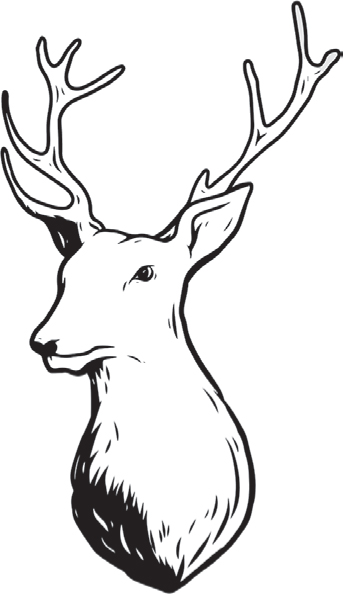
Fair game is an expression that began in the 18th century in England. King George III was a keen hunter and introduced a raft of new laws in an attempt to reduce poaching and protect the livestock of upper-class landowners. The King wanted to keep hunting as a privilege of the aristocracy and he made it illegal for anyone, apart from the landowner and his eldest son, to kill any game animal, such as pheasants or deer. The punishments for any breach of the legislation were severe. Only certain animals were exempt and allowed to be killed by others, like vermin and some birds that were harmful to the landowner’s crops. These animals were referred to in the laws as fair game.
![]()
MEANING: to get angry or offended
IN CONTEXT: He kept interrupting everything I said and it really got my back up.
Get your back up derives from the habits of cats, who arch their backs when they are threatened or angry. This causes their hair to stand on end and makes them appear larger than they actually are. The expression has been used colloquially in Britain since the 18th century and was defined in Francis Grose’s 1788 work A Classical Dictionary of the Vulgar Tongue as “His back is up, i.e. he is offended or angry: an expression or idea taken from a cat; that animal, when angry, always raising its back.”
![]()
MEANING: to be in a difficult or awkward situation through carelessness
IN CONTEXT: I got into a bit of a scrape at the grocery store when I went to pay and had no money in my wallet.
Get into a scrape dates back to the early 19th century in England. The countryside at that time was full of wild deer, which were hunted vigorously. To avoid hunters and predators, deer would use their sharp front hooves to scrape and dig out gullies in the ground, in which they would seek cover and be out of sight. These gullies were known as “scrapes” and they were very difficult to see, especially when they became overgrown by foliage. Any hunter either walking or on horseback was liable to fall down into a scrape, which could result in serious injury.
![]()
MEANING: to express a wish that something will or will not occur
IN CONTEXT: I’ve not yet lost on the stock market, knock on wood.
Sometimes phrased as “touch wood,” knock on wood is an expression that dates back to the ancient Druids, a race who inhabited England before the Romans. The Druids worshipped trees (in particular, oaks) and held the firm belief that protective spirits lived within trees. Trees, they believed, were sources of good and warded off evil spirits. People in need of good luck would go and touch a tree. Others actually wore small pieces of oak on necklaces so the wood was always in contact with their skin. The expression became commonplace by the 1850s, and Winston Churchill once said that he always liked to be within an arm’s length of a piece of wood.
![]()
MEANING: an expensive but unwanted possession or thing
IN CONTEXT: My uncle left me a boat in his will, but it turned out to be a white elephant as the maintenance costs were huge.
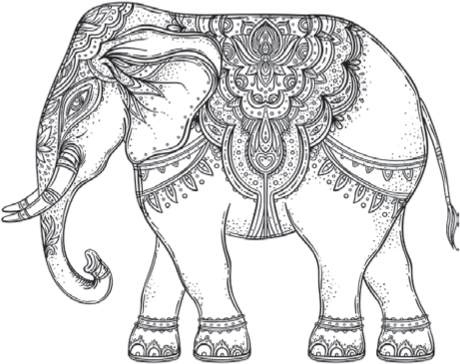
The expression white elephant stems from Thailand in the 17th century, when it was known as Siam. Albino elephants were extremely rare and any born in Siam became the property of the King. The elephants were considered sacred and could not be ridden, killed, or put to work. They were also very expensive to feed and house. If the King was displeased with any nobleman, he would gift him a white elephant out of malice. Unable to refuse a royal gift, the nobleman would be forced to care for the useless animal for the rest of his life, which would often lead to financial ruin.
![]()
MEANING: the hierarchy of authority in a group
IN CONTEXT: Kris had only been at the firm a week, but he kept contradicting the senior partners. He clearly didn’t know the pecking order.
Pecking order is a phrase which began with the farming of chickens. Domestic poultry maintain a strict hierarchy, where the lead hen is able to peck any other for whatever reason without fear of retribution. The other hens are ordered beneath the lead hen and each of them know which hens are lower than them and are thus able to be pecked. This cascades down to the lowest hen, who gets pecked by all the other hens. While this behavior had been observed for centuries, German biologists coined the phrase pecking order in the 1920s and, because of the similarities in human and corporate behavior, the expression had taken on its wider meaning by the 1950s.
![]()
MEANING: very rarely
IN CONTEXT: Our daughter lives abroad so we only see her once in a blue moon.
Once in a blue moon is an expression that is related to the moon, but the color blue has no significance in the origin of the phrase. The moon can appear blue at any time, depending on certain weather conditions, but The Maine Farmers’ Almanac provides the explanation of the saying. Since 1819, that publication listed the dates of the various moons, for example, the Harvest Moon and the Hunter’s Moon. Typically, there are three full moons for each season—winter, spring, summer, and fall. Because the lunar and the calendar months are not the same, some years had thirteen full moons instead of twelve, and the Almanac named (for no apparent reason) the third full moon in the unusual four-moon season as the blue moon. An amateur American astronomer named James Pruett misinterpreted the Almanac and described the Blue Moon as the “second full moon in a month” in a 1946 edition of Sky & Telescope Magazine. This took hold and is now the accepted definition. A blue moon occurs about every three years.
![]()
MEANING: a final accomplishment or performance
IN CONTEXT: Sam is retiring in two months. This rail project will be his swan song.
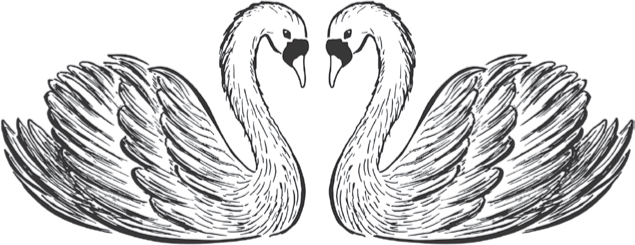
The expression swan song derives from the ancient belief that swans spent their entire lives mute and then sang beautifully for the first time just before they died. Both the ancient Greeks and Romans believed this to be the case (Socrates told Plato that the swan’s song was an expression of joy), although by AD 77, the Roman philosopher Pliny the Elder wrote in his book Naturalis Historia that “observation shows that the story that the dying swan sings is false.” Despite this, the poetic imagery of the swan song led many to include it in their works, including Chaucer and Shakespeare. The phrase itself did not come into existence until 1836, when Thomas Carlyle used it in his novel Sartor Resartus. It is thought that he based it on schwanengesang, the German version of the term.
![]()
MEANING: to have no hair; to be bald
IN CONTEXT: Lou is only thirty, but he’s as bald as a badger already.
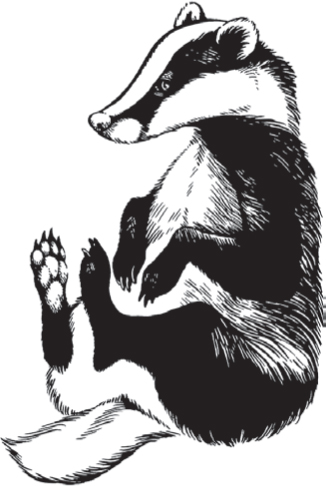
Many believe the expression as bald as a badger arose because the top of a badger’s head is white, giving the impression of baldness. However, it actually derives from Victorian times, and the original expression was “as bald as a badger’s bum.” At the time, male face shaving brushes were made with badger’s hair, plucked from the badger’s rump. Badgers were trapped for this purpose, plucked, and then set free. The hair would grow back, but before it did, it was common in the countryside of England to see bald badgers running about.
![]()
MEANING: to go against an accepted belief or practice; to do the opposite of what is expected
IN CONTEXT: Her decision to quit her job and start a new career flies in the face of sound judgment.
To fly in the face is a simple expression that has been in use for hundreds of years. It alludes to a defense mechanism used by chickens. When attacked by a fox, a chicken will fly at and around the fox’s face. While this seems a paradoxical and dangerous maneuver, it is done in an attempt to distract and confuse the fox.
![]()
MEANING: go directly toward something using the fastest route
IN CONTEXT: As soon as Andrew got home from school, he made a beeline for the refrigerator.
Make a beeline for originates from the animal kingdom, and as the phrase suggests, the bee. Once a bee discovers a nectar source, it will return to the hive where it performs a peculiar dance to communicate the location to the other bees. After watching this dance, which is a circular pattern that includes the occasional zigzag, the other bees will then make their way directly to the food source in a straight line. Experts believe that bees use the sun to navigate and that the dance performed by the forager bee indicates the angle relative to the sun that the bees should follow, as well as the distance they should go to ensure they fly in a beeline. The expression has been used figuratively since the early 1800s.
![]()
MEANING: to be naïve or inexperienced
IN CONTEXT: Greg is far too young for a job like this. He’s still wet behind the ears.
Wet behind the ears is a rare example of an expression with very simple origins. The phrase stems from the state of farm animals just after birth. There is a small indentation behind the ears of a newborn horse, calf, or lamb. This area is protected from sunlight and wind and is the last place to dry on the animal after it is born. The saying began in America and was well-known by the early 20th century.
![]()
MEANING: cats seem very lucky and tend to survive things severe enough to kill them
IN CONTEXT: My cat fell off the roof for the fourth time this month. He really does have nine lives.
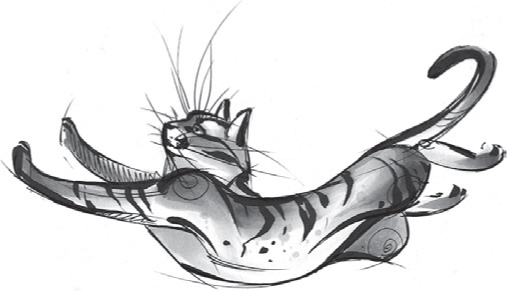
A cat has nine lives is an expression that began in ancient Egypt. Cats were revered in the Egyptian culture, probably because of their dexterity, agility, and ability to land on their feet from great heights. Cats were considered sacred animals with divine powers and were worshipped as gods. It was believed that Atum-Ra, the Egyptian sun god, gave life to eight other gods and embodied nine lives in one. On visits to the underworld, Atum-Ra took the form of a cat, which is most likely where the nine lives myth started. The number nine, sometimes called “the trinity of trinities,” was also considered mystical and could have been associated with the revered cats. Bringing the expression to the Western world, Shakespeare referred to the nine lives of a cat in his 1595 play Romeo and Juliet.
![]()
MEANING: to deal with something indirectly and avoid coming to the point
IN CONTEXT: Just tell me what you really want and stop beating around the bush.
Beat around the bush is a phrase that began with hunting in medieval times. Wealthy noblemen engaged in hunting for pleasure, but did not want to put themselves at risk. They would employ men to assist them. The men’s job was to flush out animals from within the brush so that the noblemen could shoot them. Often the men were sent into the undergrowth to scare out the animals, but in cases when they knew that dangerous animals were hiding, such as wild boar, they would beat around the bush, hitting it with a stick and making a lot of noise. By doing this, they hoped to scare the animals out into the open without actually endangering themselves.
![]()
MEANING: a misleading clue
IN CONTEXT: The police were following a red herring, but they’re on the right track now.
Dating from the 18th century, red herring is an expression whose origins relate to the fish of that name. At that time herrings were caught in great numbers and, because there was no refrigeration, they were preserved by smoking. The smoking process turned the fish a reddish-brown color and also gave it a pungent odor. In an attempt to sabotage a fox hunt, people who were against the sport would drag the strong-smelling red herring across the trail to mislead the hunting dogs and throw them off the scent. The dogs would often follow the scent of the herring instead of the fox.
![]()
MEANING: an expression of shock, disbelief, or skepticism at an idea
IN CONTEXT: If the President stays in power at the next election, then I’ll be a monkey’s uncle.
I’ll be a monkey’s uncle relates to the theory of evolution postulated by Charles Darwin. As a follow-up book to his groundbreaking work The Origin of Species, Darwin published The Descent of Man in 1871. In it he suggested that man was descended from and closely related to apes. Creationism was widespread at the time, and his theory was greeted with almost universal derision and skepticism. In fact, his claims were considered so outrageous that people began saying, “well, I’ll be a monkey’s uncle” as a sarcastic response to ridicule his theory. It then started being used to show grave doubts about any improbable situation.
![]()
MEANING: a coy euphemism used in reference to teaching a young child about sex
IN CONTEXT: My boy is about to turn ten, so it’s about time I taught him about the birds and the bees.
The birds and the bees is an expression that has been used to describe nature in general for centuries. By the 19th century, prudish and reserved educators began using the habits of these animals as analogies to explain sex through the observation of nature—bees carry and deposit pollen into flowers, which is an example of male fertilization, and birds lay eggs, a visible example of female ovulation. The idea of adopting these natural metaphors for sex education may have been inspired by the lines of Samuel Taylor Coleridge’s 1825 poem “Work Without Hope”: “All nature seems at work…The bees are stirring—birds are on the wing…And I, the while, the sole unbusy thing, not honey make, nor pair, nor build, nor sing.” Cementing the idea, the American naturalist, John Burroughs, wrote a set of essays in 1875 entitled Birds and Bees, Sharp Eyes, and other Papers, which presented nature to children in an easily digestible way.
![]()
MEANING: savings that are set aside for later use, which a person tries to add to
IN CONTEXT: He lost his entire nest egg when the stock market crashed.

Nest egg is a phrase that has been used from as early as the 14th century in England. In those days before commercial factory chicken farming, chickens would lay their eggs in nests in the coop. As a means of giving the chickens hope and encouraging them to lay more eggs, farmers used to place a porcelain or china egg in the nest or the coop area. This dummy egg was known as a nest egg and did often induce the chickens to be more productive. The expression was used to refer to someone’s financial savings by the late 1600s.
![]()
MEANING: pursuing the wrong course of action; making a mistaken assumption
IN CONTEXT: She had been trying to solve the math problem for an hour, but with the formula she was using she had been barking up the wrong tree.

Barking up the wrong tree is an expression that derives from hunting in America. In the early 19th century, men would go raccoon hunting. Because the raccoon is a nocturnal animal, dogs would be used to track them. In a panic to escape, the raccoons would often run up trees to the safety of branches out of reach of the dogs. Having picked up the scent of the raccoon, the dog would stand barking at the base of the tree to alert the hunter. But the raccoon is a cunning quarry and would occasionally trick the dog into thinking it was up a certain tree when it had actually escaped. It wasn’t until the hunter had climbed the branches that he realized his dog was barking up the wrong tree.
![]()
MEANING: a mock prize given to make fun of the worst player in a contest or game
IN CONTEXT: Jan has come last yet again so we should give her a booby prize.
Booby prize derives from the blue-footed booby, a South American bird that is known to be unintelligent and easy to catch. Sailors during the 17th century who first came across the birds found that they didn’t try to escape when approached, and could be caught on deck with a simple noose and food as bait (this is the origin of the expression booby trap). Because of this, slow-witted sailors soon became known as boobies, and the prize given to anyone who came last in a contest was called a booby prize.
![]()
MEANING: a small and insignificant event that makes an entire situation intolerable
IN CONTEXT: I had hated my job for years, but when my boss berated me for taking a day off sick, it was the final straw and I quit.

The final straw is a contraction of the Arabic proverb, “it is the last straw that breaks the camel’s back.” It refers to a situation where a camel is so overloaded that by adding one last piece of straw its back finally breaks. “The last feather that breaks the horse’s back” was a similar expression used in England in the 17th century, but the final straw was popularized by Charles Dickens when he used it in his 1848 book Dombey and Son.
![]()
MEANING: excellent; the highest quality
IN CONTEXT: Have you tried that new Chinese restaurant in town? It’s the bee’s knees.
Bee’s knees relates to the way in which bees carry pollen to their hives. Once the bee has extracted pollen from a flower, it carefully places it into sacs on the rear of its legs. Many believe the expression derives from the concentrated and rich pollen that is found around the bee’s knees. Whether that is true or not, the phrase was first used in America in the 1920s when it became fashionable to use meaningless animal-inspired expressions to mean “excellence.” There were many of them: the cat’s pajamas, the snake’s hips, the monkey’s eyebrows, the eel’s ankles, and the bee’s knees.